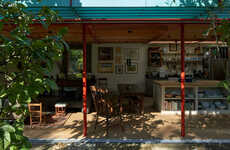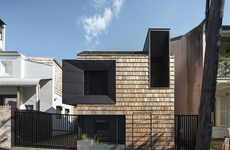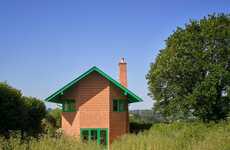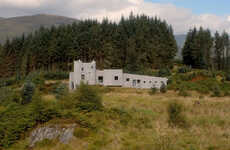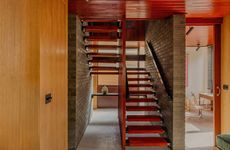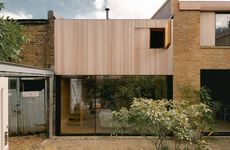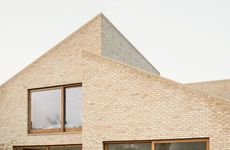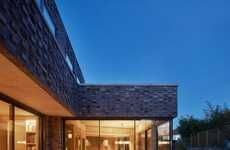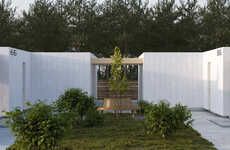
Library House by Macdonald Wright Architects Uses Low Energy
Elena Rahman — March 8, 2022 — Eco
References: macdonaldwright & dezeen
The London-based studio Macdonald Wright Architects designed and created the low-energy Library House on an infill plot in Hackney. It is intended as a rental property for the studio's founder James Macdonald Wright and features two stories built on a four-meter-wide plot.
Previously, the plot was used as a junkyard. Now it fosters the low-energy Library House. The house is heavily insulated to provide visitors with warmth during their stay. The project aims to demonstrate how low-energy homes can be created using simple yet robust materials. Architects can make affordable sustainability choices without sacrificing effectiveness. Moreover, the studio worked closely with certified Passivhaus designer Conker Conservation to meet the Association for Environment Conscious Building standard.
Image Credit: Macdonald Wright Architects
Previously, the plot was used as a junkyard. Now it fosters the low-energy Library House. The house is heavily insulated to provide visitors with warmth during their stay. The project aims to demonstrate how low-energy homes can be created using simple yet robust materials. Architects can make affordable sustainability choices without sacrificing effectiveness. Moreover, the studio worked closely with certified Passivhaus designer Conker Conservation to meet the Association for Environment Conscious Building standard.
Image Credit: Macdonald Wright Architects
Trend Themes
1. Low-energy Homes - Building heavily insulated homes with affordable, robust materials to provide warmth during stay.
2. Sustainable Architecture - Incorporating low-energy materials and design choices to meet environmentally-conscious building standards.
3. Passive House Design - Utilizing certified designers to create buildings that meet the Association for Environment Conscious Building standard.
Industry Implications
1. Architecture and Design - Incorporating low-energy, sustainable materials and design choices into architecture projects.
2. Construction - Using affordable, efficient materials in construction projects to promote energy conservation.
3. Real Estate - Investing in low-energy, sustainable properties to promote ecological responsibility and energy efficiency.
6.2
Score
Popularity
Activity
Freshness


